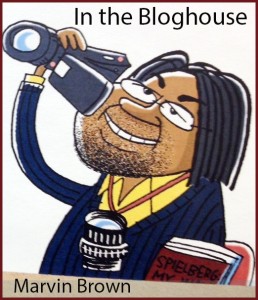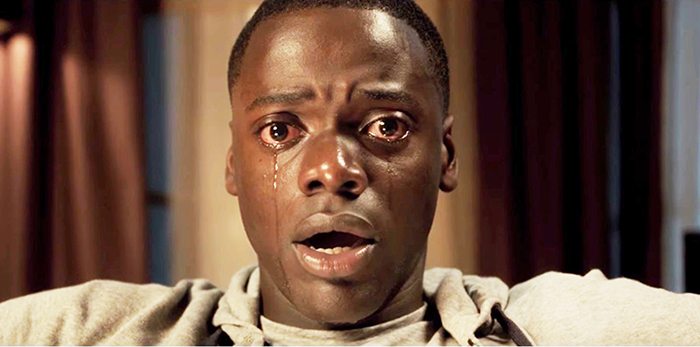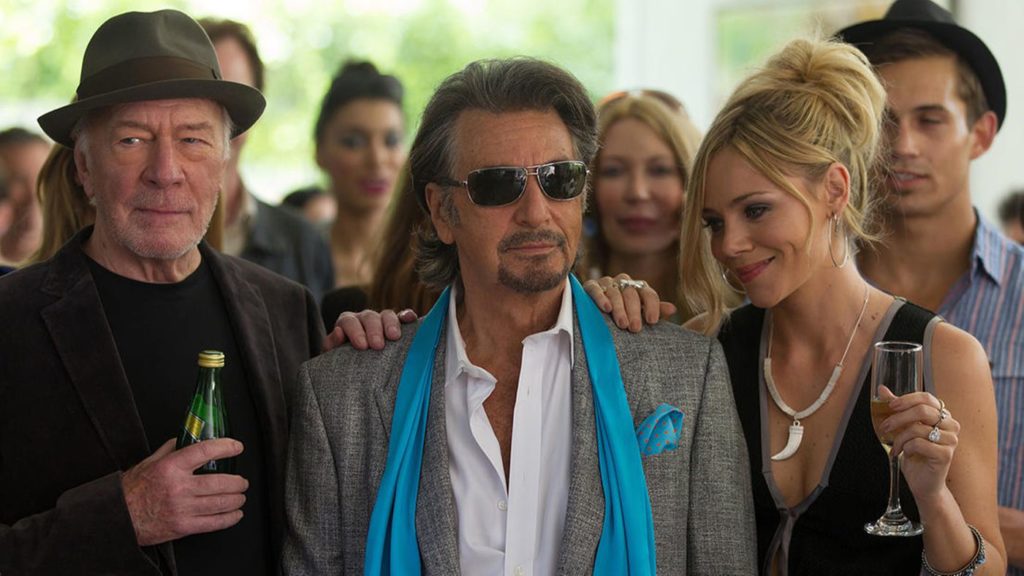Video review
Kept Boy (2017)
Unrated

Breaking Glass Pictures
Kept Boy steadily endeared me to its character as it rolled along. The gay romantic comedy is definitely funny, and its breezy pace kept me involved despite my initial reservations with the clichéd characters: the rich, aging sugar daddy; his buff mindless kept man-child; his brash male housekeeper; and the new stud who lobs himself into the mix like a live grenade.
Out now on DVD and VOD, the film, director by George Bamber (a veteran assistant director, moving to the big chair here), won me over despite its expected love triangle; it gets a mighty lift from humor and his actors.
 We meet Farleigh (Thure Riefenstein) and Dennis (Jon Paul Phillips) during what must be a routine house party. We sense they’ve been living this way for years: the swimming pool fetes, limitless bottle of wine and champagne, flashy name-dropping guests. The men seem tired, disconnected, and suspicious that something’s changing between them.
We meet Farleigh (Thure Riefenstein) and Dennis (Jon Paul Phillips) during what must be a routine house party. We sense they’ve been living this way for years: the swimming pool fetes, limitless bottle of wine and champagne, flashy name-dropping guests. The men seem tired, disconnected, and suspicious that something’s changing between them.
Farleigh is the celebrity breadwinner, the aging host of a once-popular home-design reality TV show. In his tailored suits, deliberate speech and accoutrements of importance, Farleigh plays his role of parent/husband/alpha male in a house of flighty men. Dennis is the kept boy of the title, having long been faithful in his role of eye candy companion (his skills are working out and pouring drinks). Not to be forgotten is Javi, the multiple hyphened helpmate who, Dennis learns belatedly, was the previous kept boy. Javi (Deosick Burney) could be the stereotypical funny black guy, but the script gives Java a couple of nice scenes to discuss his role in Farleigh’s life and Burney elevates the character.
How long was this makeshift family going to last? Fading youth and stagnant routine have a way pecking at longtime lovers, doesn’t it? When Farleigh urges Dennis to get a job and announces he’s selling the Porsche (ostensibly Dennis’ car) Dennis draws out of his lover that their halcyon days may be waning. Farleigh’s carrying massive debt and his ratings-challenge TV show appears to be in its final season.
More troubling to Dennis, who’s completely without job skills, is Farleigh’s interest in the younger, handsome Jasper (Greg Audino), Farleigh’s pool boy turned sudden assistant for the TV show.
Farleigh and Jasper seem to flirt in plain sight, which Dennis absorbs with brutal dignity. But Dennis is not without weapons in this battle. He knows Farleigh’s weak spots and can intuit his sugar daddy’s reactions like nobody’s business.
The film grows interesting because Farleigh, Dennis and Jasper are as self-aware of their roles as we are. Farleigh and Dennis each seem to realize what they had for years is coming to an end—or a transition neither wants to face. They’re playing their roles, but also preparing for life without each other. Beefcake Jasper, more calculating than we initially expect, has sincere motivations. The lovers’ triangle is put through its sexual paces; each combination gets a shot at getting busy.
Bamber’s film has a couple of surprises up its sleeve. A getaway island trip—make or break, as far as Dennis is concerned—teeters fascinatingly between slapstick and drama, culminating in abrupt violence and gunplay. A sweet, quiet, honest long-in-the-coming discussion between Farleigh and Dennis ends with a turn that deepens the proceedings. The island drama notwithstanding, much of the film flows by on strong currents of humor, aided by the likability of the characters. Speaking of likable characters, let’s give shout-outs to Dennis’ lonely-hearts kept-mates, Lonnie (John-Michael Carlton) and Paulette (Toni Romano-Cohen): he, hanging on to his rich-widow sourpuss; she, bemoaning her lot as an aging trophy-gal. The trio slurps mixed drinks in various lounges while strategizing—with well-timed, hilarious dialogue—their next moves as the users who have become the used.
Dennis, most importantly, takes on unexpected dimensions from Phillips’ assured performance, and final scenes between he and Javi, then he and Jasper, really feel authentic, taking the film farther away than expected from its opening scenes of debauched cliché.

| Marvin Brown’s Movie Review Archive



 Before he was a celebrity living off his name and long-ago hit songs, he was a talented singer/songwriter. So talented, in fact, a circa ’70s interview he did for a Rolling Stone-like periodical caught the attention of John Lennon.
Before he was a celebrity living off his name and long-ago hit songs, he was a talented singer/songwriter. So talented, in fact, a circa ’70s interview he did for a Rolling Stone-like periodical caught the attention of John Lennon.



